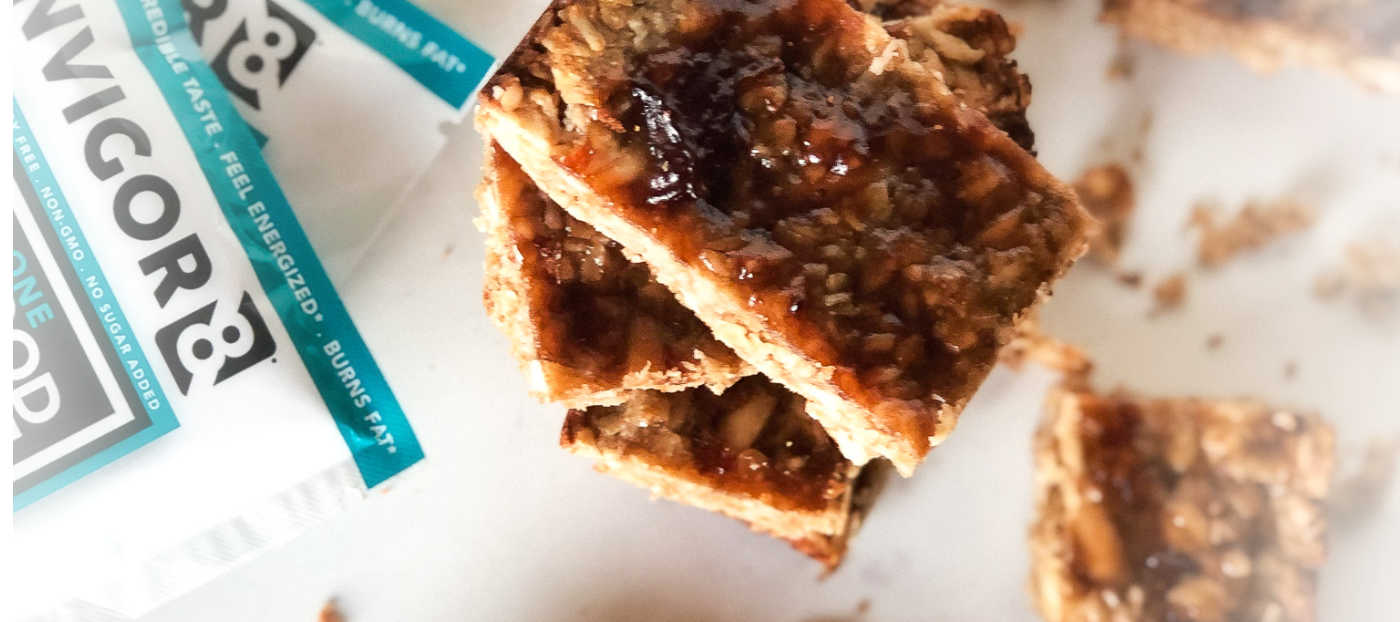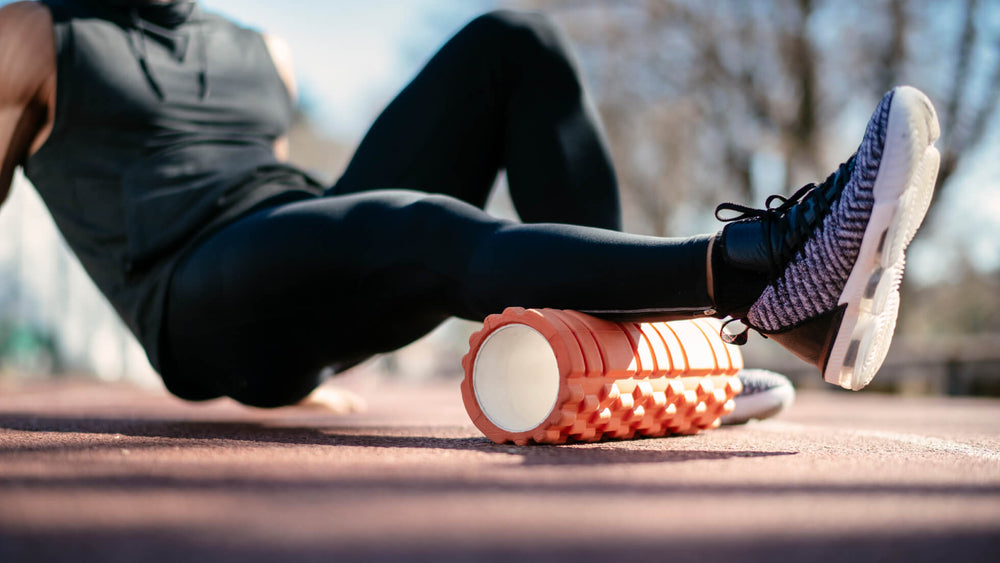Peanut Butter and Jelly Granola Bars

These homemade high-protein granola bars are great for snacking or bringing on a hike or long bike ride. The sugars from the jam will give you quick energy, while the fats and fiber from the oats and peanut butter keep your blood sugar from spiking.
Recipe:
(Makes 9 bars)
¼ cup + 1 tbsp natural peanut butter
¼ cup slivered almonds or chopped peanuts
¼ cup strawberry jam, plus 1 tbsp for topping
1 tbsp coconut oil
1 scoop French Vanilla INVIGOR8 Superfood Shake
¼ tsp salt (if peanut butter is unsalted)
1 cup rolled oats
Preheat the oven to 350º F. Line a 9x5-inch loaf pan with parchment paper.
In a medium pot over low heat, add the peanut butter, almonds or peanuts, jam, coconut oil, INVIGOR8 shake powder and salt (if using). Stir until it melts into a uniform liquid. Mix in the oats until thoroughly combined.
Transfer the batter into the loaf pan and press down into one even, compact layer. Spread the remaining jam on top in a thin layer.
Bake for 15 minutes, or until the edges start to turn golden brown. Allow to cool completely before cutting into bars or squares.
Take the next step in your training regimen: Try any BRL Sports supplement risk-free! If our natural nutritional products aren’t the best you’ve ever used, simply return your purchase for a 100% refund — no questions asked!
Also in Inspiration & Perspiration

Extreme Endurance: How Elite Athletes Train Beyond the Limit
Explore how elite athletes train for extreme endurance. Learn what it takes to build physical and mental capacity for ultra-distance performance.

Marathon Training Nutrition: Complete Fueling Guide from Base Building to Race Day
A practical guide to marathon training nutrition, with fueling strategies, common mistakes to avoid, and how to adjust your intake from base to race.

Creatine vs Pre Workout: Which Should You Take? (Or Both?)
Creatine and pre workout serve different goals. Learn how they compare, when to use them, and whether stacking both is right for your routine.


